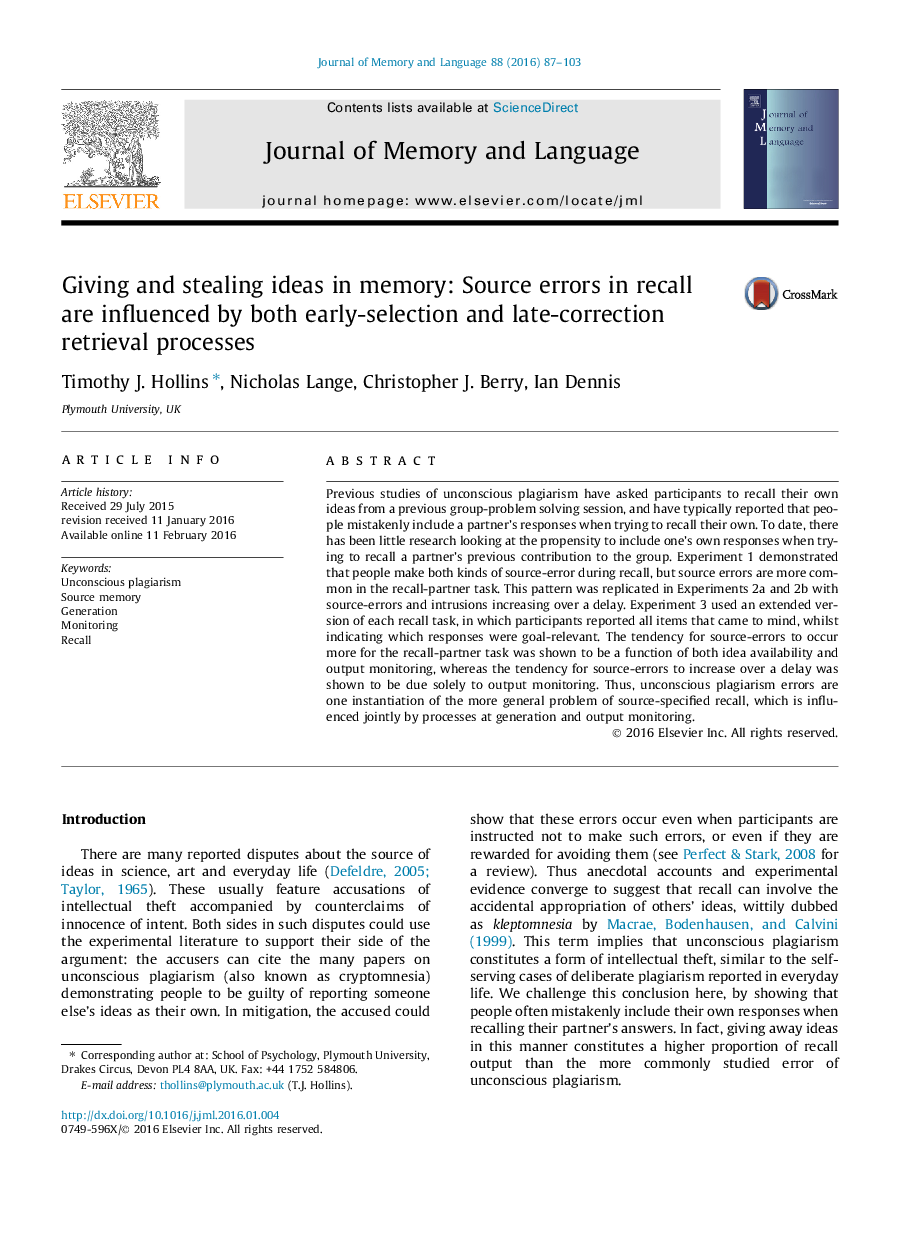| Article ID | Journal | Published Year | Pages | File Type |
|---|---|---|---|---|
| 7296935 | Journal of Memory and Language | 2016 | 17 Pages |
Abstract
Previous studies of unconscious plagiarism have asked participants to recall their own ideas from a previous group-problem solving session, and have typically reported that people mistakenly include a partner's responses when trying to recall their own. To date, there has been little research looking at the propensity to include one's own responses when trying to recall a partner's previous contribution to the group. Experiment 1 demonstrated that people make both kinds of source-error during recall, but source errors are more common in the recall-partner task. This pattern was replicated in Experiments 2a and 2b with source-errors and intrusions increasing over a delay. Experiment 3 used an extended version of each recall task, in which participants reported all items that came to mind, whilst indicating which responses were goal-relevant. The tendency for source-errors to occur more for the recall-partner task was shown to be a function of both idea availability and output monitoring, whereas the tendency for source-errors to increase over a delay was shown to be due solely to output monitoring. Thus, unconscious plagiarism errors are one instantiation of the more general problem of source-specified recall, which is influenced jointly by processes at generation and output monitoring.
Related Topics
Life Sciences
Neuroscience
Cognitive Neuroscience
Authors
Timothy J. Hollins, Nicholas Lange, Christopher J. Berry, Ian Dennis,
